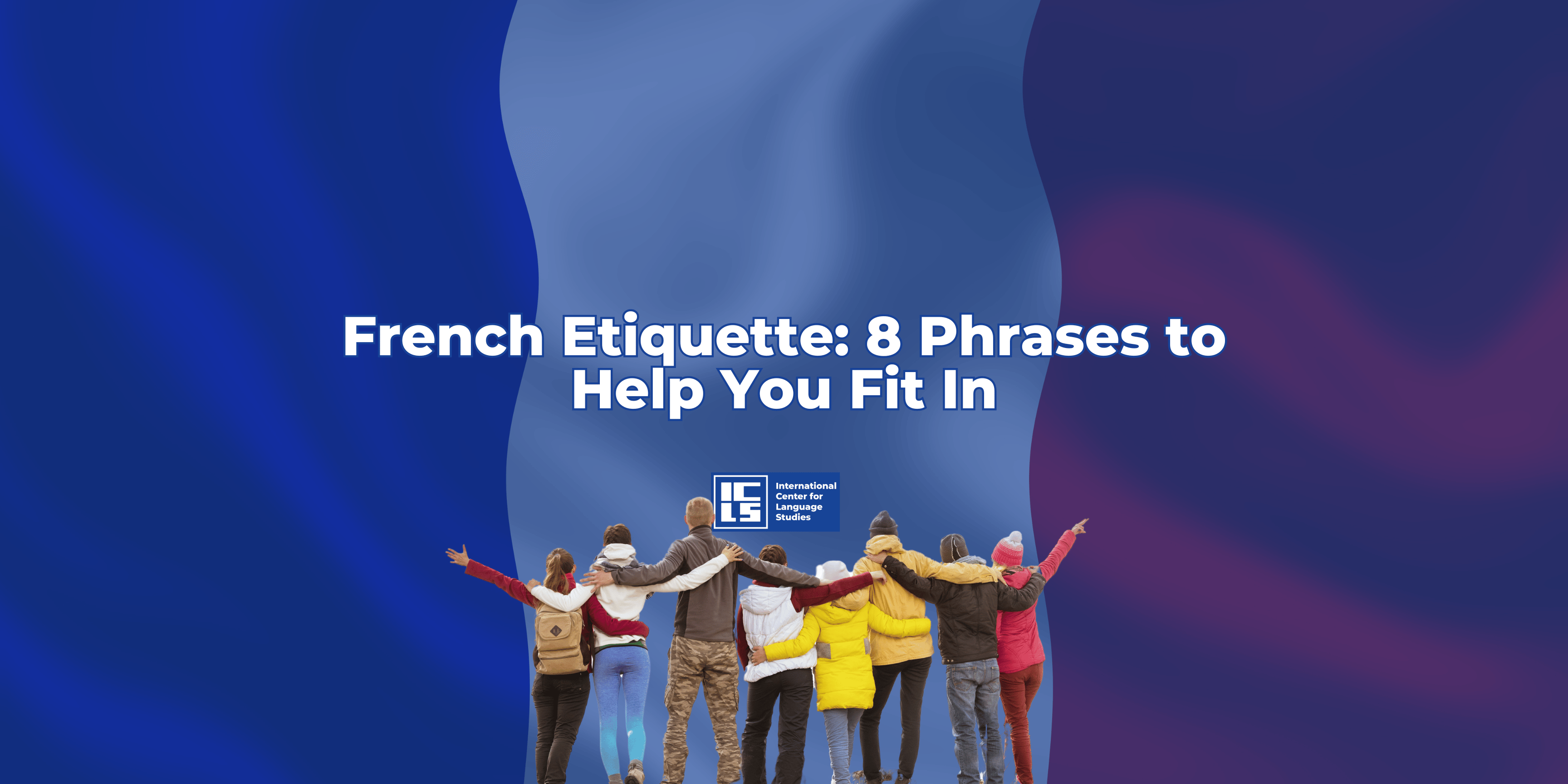French Etiquette: 8 Phrases to Help You Fit In

France is known not only for its rich culture and cuisine but also for its subtle etiquette. Whether you're planning a vacation or preparing for business in France, knowing the right phrases will help you avoid social missteps and make lasting, positive impressions. In this post, we'll cover eight essential French phrases that will help you fit in and feel more confident. By the end, you'll realize just how much language learning can enhance your experience in French-speaking environments.
-
Bonjour! (Hello!)
- When to use it: Always greet people with "Bonjour" when entering a shop, office, or any social setting. It’s polite and expected in French culture.
- Why it matters: Greetings are essential for establishing rapport. In French culture, skipping this step can be perceived as rude.
- A more casual alternative: If you're meeting a friend, you can also say "salut" although "Bonjour" is also appropriate.
Learn how to confidently greet and introduce yourself in everyday French interactions in our Online Group Classes.
-
S'il vous plaît (Please)
- When to use it: Whenever you’re asking for something, always add "s’il vous plaît" at the end. Whether in a café or asking for directions, it shows respect.
- Why it matters: Manners go a long way in France, and using polite phrases can make people more inclined to help you.
- A more casual alternative: in everyday informal situations, you might hear it pronounced as "siouplait". Don't be surprised, it is just the contracted form of the word.
-
Excusez-moi (Excuse me)
- When to use it: If you need to pass through a crowd or get someone's attention, this phrase is crucial.
- Why it matters: Using polite phrases in crowded spaces, like Paris metro stations or markets, will help you blend into the culture seamlessly.
- A more casual alternative : you can also use "pardon" in informal situations or when speaking to somebody you know well.
In our classes, you'll practice conversational French so you can naturally use phrases like these in real situations.
-
Comment ça va? (How are you?)
- When to use it: After saying "Bonjour," it's common to ask someone how they're doing. This casual conversation starter helps establish a friendly tone.
- Why it matters: Engaging in small talk shows that you're interested in the person, which is highly valued in French culture.
- A more casual alternative : You can shorten it to "ça va?" in informal contexts. As a matter of fact, "ça va" is a very versatile and heavily used expression in French. Watch this funny clip for an example.
-
Merci beaucoup (Thank you very much)
- When to use it: Whether you’re thanking someone for holding the door or after a meal, "Merci beaucoup" expresses gratitude.
- Why it matters: French etiquette values appreciation, and expressing it will make interactions smoother.
- How to respond: When somebody thanks you, respond with "de rien"
Get personalized feedback in our classes on how to express yourself politely in various situations.
-
Je suis désolé(e) (I’m sorry)
- When to use it: Apologizing is important when you've made a mistake or inconvenience someone, even in minor situations like bumping into someone.
- Why it matters: Acknowledging faults with a quick "Je suis désolé" can help you avoid awkwardness and maintain politeness.
- A more casual alternative : you can also use "pardon" to apologize in informal situations or when speaking to somebody you know well.
-
Puis-je…? (May I…?)
- When to use it: When you need permission to do something, such as entering a room or taking a seat, start with "Puis-je...?"
- Why it matters: Formality is appreciated in many aspects of French life, especially in professional settings.
- A more casual alternative: In a less formal context, you can use "Je peux...?" ("Can I...?").
-
Au revoir (Goodbye)
- When to use it: Ending a conversation or leaving a room without saying "Au revoir" can seem abrupt.
- Why it matters: Properly closing interactions helps leave a positive final impression.
- A more casual alternative: You can also say "salut" or even " à plus", short for "à plus tard" when saying good bye to a friend.
Mastering these essential phrases is just the beginning. French etiquette may seem complicated, but with practice, you’ll feel at home in any French-speaking environment.
Our ICLS French Online Group Classes offer you the opportunity to practice these phrases and more, with live instruction, small group settings, and personalized feedback. Whether you're preparing to travel to France or simply want to engage in French culture, we’ve got the course for you!
Looking to go beyond the basics? Join our ICLS French Online Group Classes to gain confidence, practice in a supportive environment, and master conversational French!


